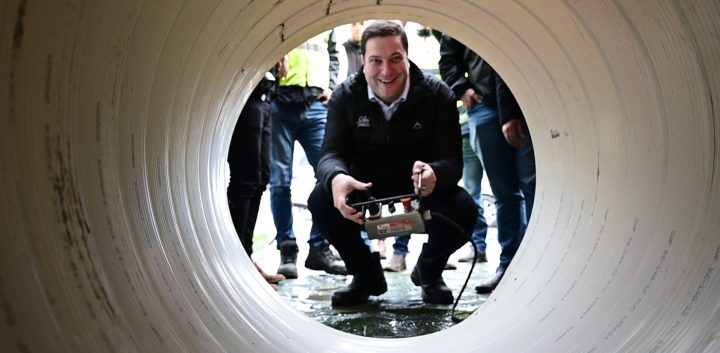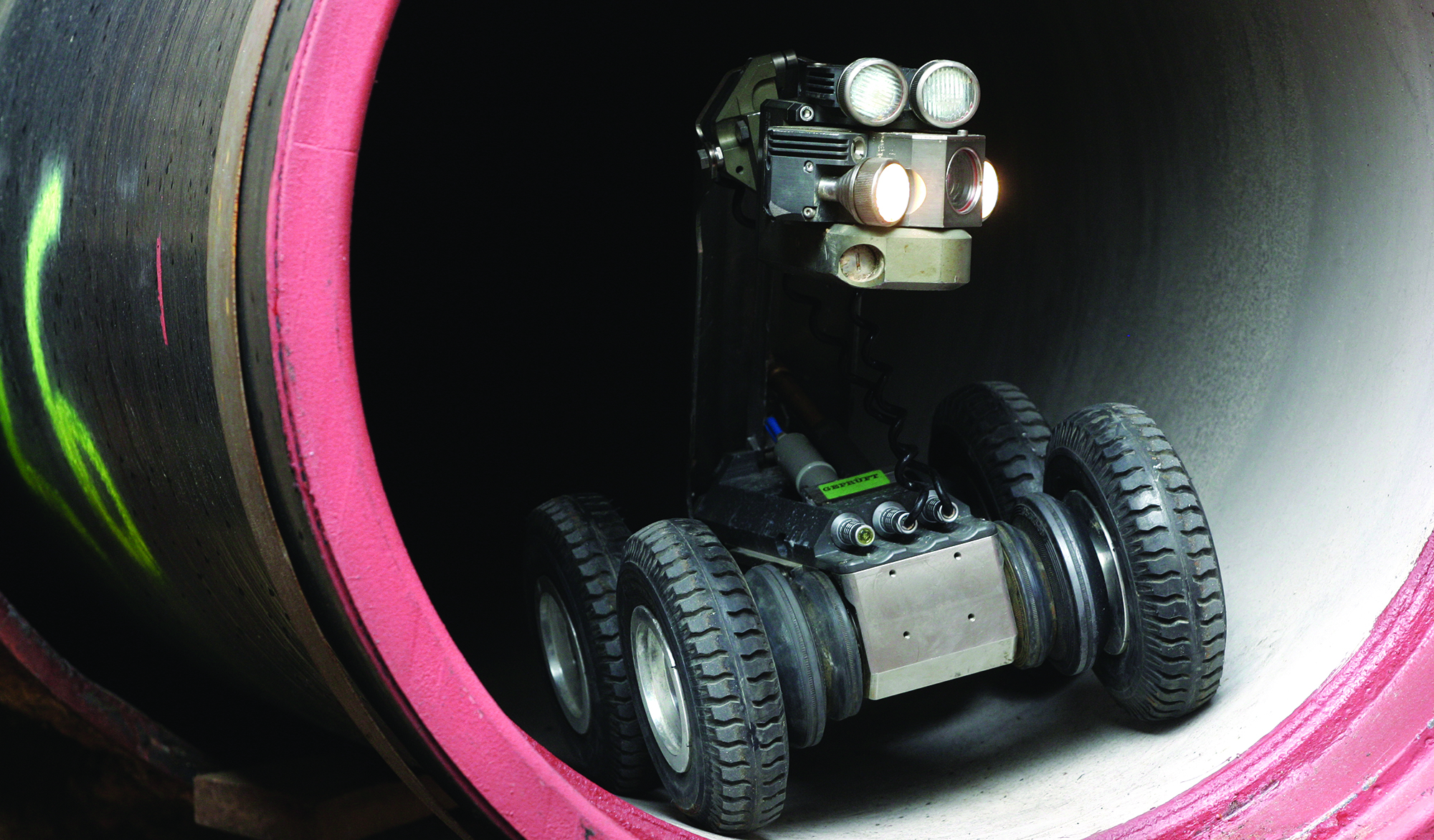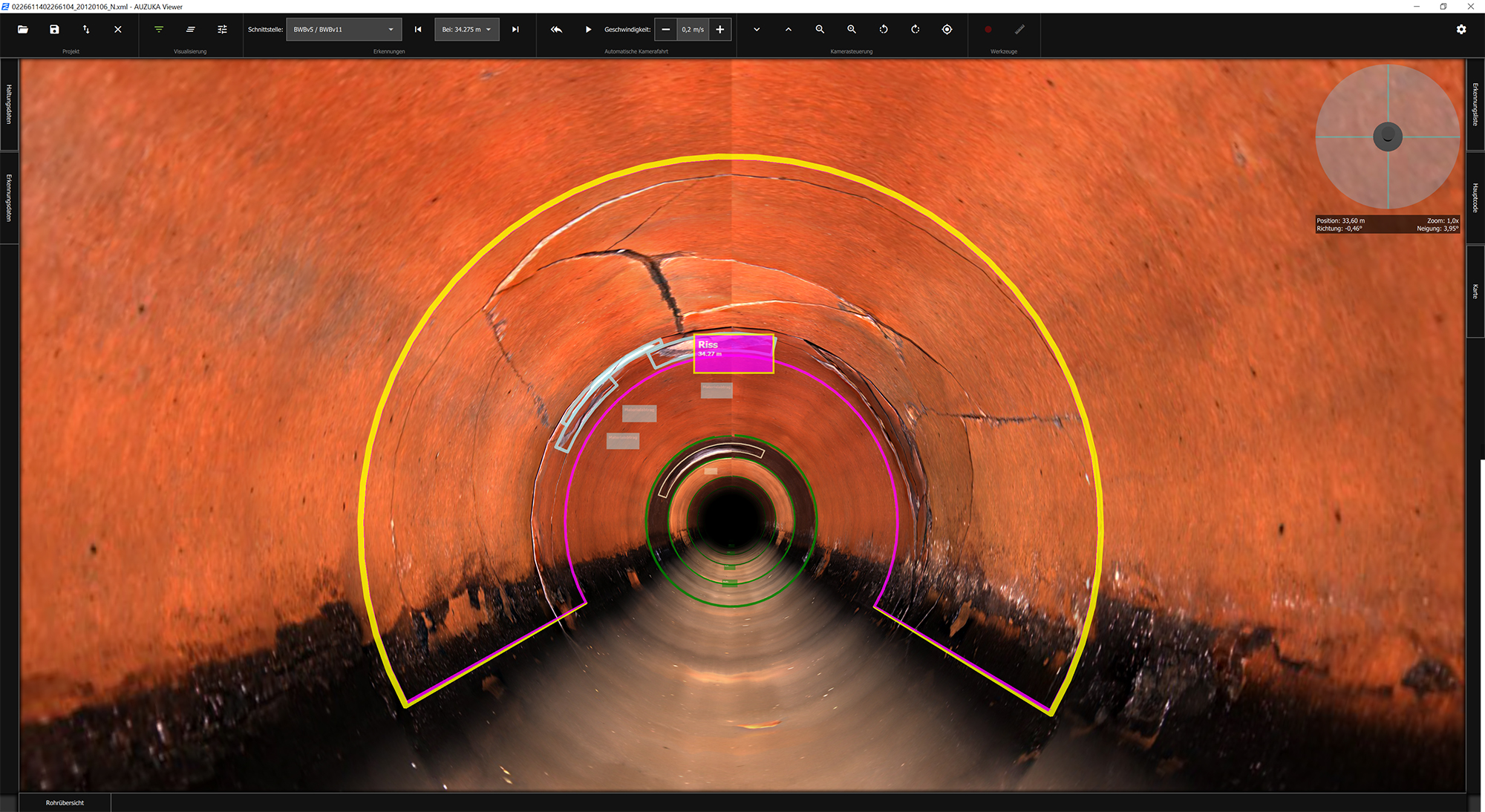100-YEAR PLAN
Cape Town ropes in robo camera to track down worn-out pipes in major sewerage upgrade

If you live in South Africa, having your water supply cut off or compromised as a result of ailing sewage infrastructure is not a new or rare occurrence as municipalities across the country fail to adequately invest in sewerage. In Cape Town, the municipality is undertaking the biggest sewer upgrades yet in the country, and a lot of it will be done robotically.
The City of Cape Town is using a robo camera to track down worn-out pipes for a major sewage infrastructure upgrade. This CCTV inspection and profiling is an important part of the current rehabilitation of the City’s twin 28km Cape Flats 1 and 2 bulk sewers, which were completed in 1962 and 1969 respectively.
These sewers service an 8,000-hectare area and 275,000 households on the Cape Flats, and the developments and households they serve have increased monumentally, putting further pressure on the ageing system.
Mayor Geordin Hill-Lewis, during an inspection of the progress on the R715-million Cape Flats Bulk Sewer upgrade on Thursday, 29 June, said:
“We’ve seen over the years the ageing infrastructure. We’ve got old pipes that are falling in on themselves or collapsing, pipes that are too small to handle the density and the number of people who live in an area now. These upgrades deal with all of those issues… Over time, you’ll start to see those infrastructure issues go away.”
With this “historic project” they were upgrading the sewers built at the height of apartheid in the 1960s and future-proofing them for the next 100 years.

A CCTV camera in Germany similar to the ones to be used in Cape Town’s sewer upgrades. This one was developed by Berliner Wasserbetriebe and Kompetenzzentrum Wasser Berlin. (Photo: Berliner Wasserbetriebe)
The areas that will benefit from the upgrade include Athlone, Hanover Park, Lotus River, Ottery, Grassy Park, Eagle Park and areas around Pelican Park.
Over the next three years the City will invest R1.3-billion in major bulk sewer upgrades on the Cape Flats, Philippi, Milnerton and Gordon’s Bay lines.
“To complete the Cape Flats upgrade the City is using innovative trenchless technology, which ensures that there are no lengthy and disruptive excavations while work is under way. Residents and businesses are not inconvenienced by invasive construction sites in the area, and the only visible signs that maintenance work is being carried out will be in the form of some staff and vehicles at manhole access points.”
With a budget of R715-million for this rehabilitation over the next three years, the City and its partners have begun bulk cleaning, CCTV assessment, inspection and profiling, and spirally wound pipe lining – a trenchless method of rehabilitation for damaged or deteriorating pipelines.
Mainline Civil Engineering is the contractor and Ingerop South Africa the consulting engineers.
The process
Herman Geldenhuys, from Ingerop, said the first step was to clean and then investigate the state of the pipes before deciding on the best design. Before the CCTV inspection and profiling can be done a bulk cleaning of the system is done to remove all the debris, silt and sand.
Once the pipeline is clean a specialised camera system – connected to a video monitor and a control unit – is inserted into the pipe, recording high-quality video footage to assess cracks, corrosion and other defects
After that someone goes in to measure the diameter of the pipe, before the rehabilitation system is designed.
(Video: SWP Systems GmbH)
Mainline contracts manager Kumeshin Sinayan explained that because the sewer runs beneath residential areas, and to avoid digging it up, they will use trenchless technology, whereby a PVC liner is installed along the length of the pipes with a machine, unrolled and spirally wound into place, conforming to the shape and diameter of the pipe. A chemical weld is applied to the joints to ensure their strength and integrity, creating a strong and durable liner with a smooth, corrosion-resistant surface.
Using PVC “ gives the new sewer a 100-year lifespan”, said Sinayan.
“One of the problems with the sewer is that it builds up hydrogen sulphide gas, which corrodes concrete… the existing pipes are old and with the years of exposure to the gas it corrodes and turns into a different material. The reason we use PVC material is because it’s resistant to the chemicals and doesn’t degrade.”

An image generated by the modelling tool developed by Berliner Wasserbetriebe and Kompetenzzentrum Wasser Berlin in Germany. (Photo: Berliner Wasserbetriebe)
City project manager Vuyo James said the aim is to protect the internal surface of the concrete pipes and prevent further deterioration caused by the gas, and to restore the structural integrity and prevent groundwater getting in and sewage getting out.
The sewer manholes would be rehabilitated too.
“The two Cape Flats bulk sewers also provide a link for the transfer of flow between two bulk wastewater catchment areas. Most of their inflow comes from the Raapenberg and Bridgetown pump stations. These twin bulk sewers run mostly on the same route, starting at the mixing chamber in Hazel Road and ending at the Cape Flats WasteWater Treatment Works for an approximate distance of 14km each.”
Future-proofing sewers
Climate modelling experts at the Council for Scientific and Industrial Research have said that as the impacts of climate change become more pronounced, there is a need to revise built-in infrastructure to ensure it is climate-resilient for now and in the future.
In response to how climate-resilient the new pipelines will be, Geldenhuys said sewers aren’t affected too much because people still generate effluent that needs to be conveyed to water treatment works. However, this technology does strengthen the sewer system to deal with expanding populations.
Mayor Geordin Hill-Lewis lowers the robo camera into the pipe. (Video: Kristin Engel)
“The Cape Flats drainage system works with three major pipelines – Cape Flats 1, Cape Flats 2 and Cape Flats 3 – which were constructed in about 2013. The three work in unison; you can divert flow to any of the three. Thus by rehabilitating even one pipe, you are taking pressure off the other ones,” he said.
The rehabilitation would therefore help accommodate the expansion and urbanisation of the city, since the Cape Flats bulk sewers would be able to handle more flow.
Pipe dreams
These upgrades are part of the City’s plan to replace 100km of sewage pipes every year across the metro, for a total investment of R850-million over the next three years.
Hill-Lewis said: “Pipe replacement is part of a strategy to bring down sewer spills over time, including major bulk sewer upgrades, proactive cleaning of sewer lines, resourcing of sewer spill response teams, and digital telemetry systems for early warnings on sewer spills.” DM
For tickets to Daily Maverick’s The Gathering Earth Edition, click here



















More proof that you’re good sh*t DA.
Keep doing what you’re doing guys – one day people will wake up to the reality that there is only 1 sensible party to vote for in this country.
If only our mayor and his team could run all of South Africa and show the ANC how to manage a city! It’s all about forward planning and timeous maintenance
Do think who you want to be ‘governing’ you in 2024, Oh South African voters. It really is a no brainer.